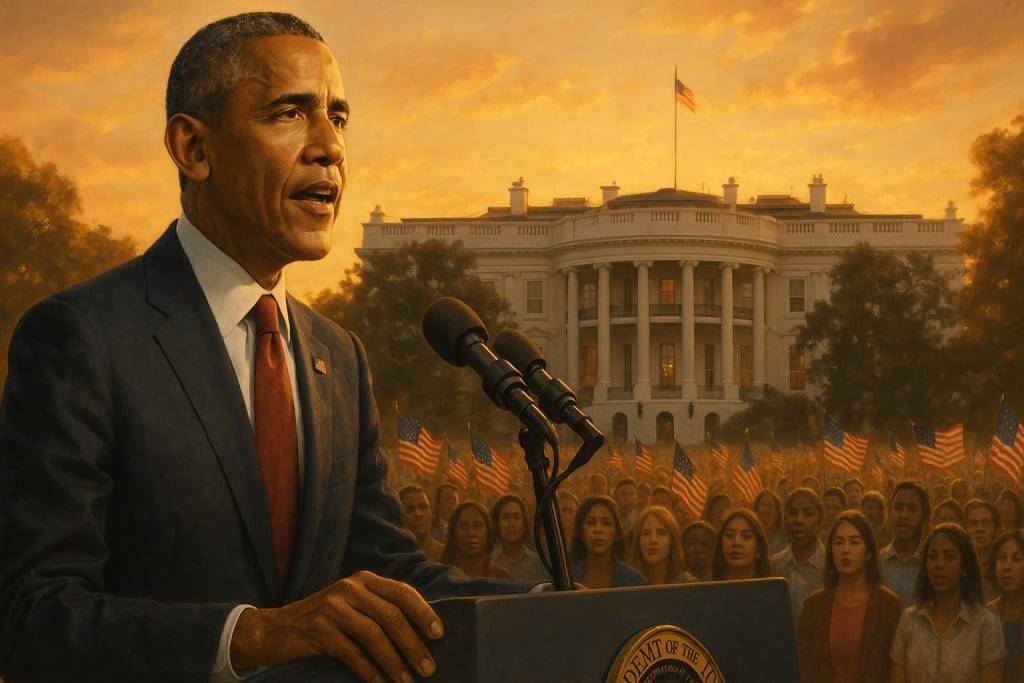How Barack Obama Redefined American Politics Forever
I’ll never forget election night, November 4, 2008. I was crammed into a tiny college apartment with friends, the TV blaring, pizza boxes scattered everywhere. When the news called it for Barack Obama, the room erupted—cheers, tears, hugs. It wasn’t just a win; it felt like history cracking open. A Black man, the son of a Kenyan immigrant and a Kansas-born mother, was about to become president. For a moment, it seemed like anything was possible. Ever had one of those nights where you felt the world shift just a little? That’s what it was like. But looking back, Obama’s impact wasn’t just about that moment—it was about how he rewrote the rules of American politics, for better or worse.
There’s something electric about Obama’s story, isn’t there? He wasn’t supposed to win. A first-term senator with a name like Barack Hussein Obama, running against the Clinton machine and a war hero like John McCain? The odds were stacked high. Yet, he did it, and it wasn’t just luck. Obama tapped into a hunger for hope, for something new. His campaign wasn’t just a campaign; it was a movement. “Yes We Can†wasn’t just a slogan—it was a call to arms for people who felt left out of the political game. Young voters, minorities, first-time donors—they showed up in droves. I remember my friend, who’d never voted before, proudly showing off her “I Voted†sticker that day. That’s what Obama did: he made politics feel personal.
His secret weapon? The internet. Obama’s team didn’t just use social media; they weaponized it. Facebook, Twitter, YouTube—these weren’t just platforms; they were organizing tools. His campaign spent $643,000 on Facebook alone, building a digital army of over two million supporters who organized events, shared videos, and raised millions in small-dollar donations. I mean, think about it: when was the last time a candidate connected with people so directly, bypassing the gatekeepers of traditional media? He posted weekly addresses on YouTube, for crying out loud. By 2012, his Twitter account was the most-followed of any politician, with over 131 million followers by 2024. He made politics feel like a conversation, not a lecture.
But it wasn’t just tech. Obama brought a new kind of coalition to the table. The “Obama coalitionâ€â€”young people, people of color, urban voters—wasn’t just a demographic; it was a shift in who politics was for. He energized groups that had been ignored for too long. In 2008, Black voter turnout surged, and young voters under 30 made up 18% of the electorate, up from 14% in 2004. I think of my cousin, who was 19 at the time, dragging his friends to the polls because “Obama gets it.†That coalition reshaped the Democratic Party, making it more diverse, more urban, more progressive. But it also sparked a backlash—some say it paved the way for the polarized politics we see today. Did he unify or divide? I’m not sure there’s a clean answer.
His presidency wasn’t just about vibes, though. The Affordable Care Act, or “Obamacare,†changed lives. I remember my neighbor, a single mom, crying with relief when she got health insurance for her kids. Nearly 50 million people have been covered through the ACA since it passed in 2010. But it also deepened the partisan divide—Republicans averaged just 14% approval of Obama’s presidency, compared to 81% from Democrats. His push for unity, so central to his 2004 DNC speech, hit a wall. “There is not a liberal America and a conservative America—there is the United States of America,†he said back then. But by 2016, that dream felt distant. The rise of the Tea Party, the birther movement, even Trump’s campaign—some argue these were reactions to Obama’s presidency, to the change he represented.
And yeah, he wasn’t perfect. His promise of a transparent administration stumbled—Edward Snowden’s leaks exposed NSA surveillance that shocked a lot of us. I felt betrayed, honestly, wondering how the guy who preached hope could oversee something so secretive. Yet, he also made mistakes that were human. Remember when he accidentally called Joe Biden “Vice President Biden†at a 2022 White House event? A small slip, but it made him relatable, like your uncle who forgets names at Thanksgiving. He was never just a politician; he was a symbol, for better or worse.
So, what’s Obama’s legacy? It’s complicated. He broke barriers as the first Black president, showing a generation that leadership could look like them. He rewrote campaigning with tech and grassroots energy. He passed landmark legislation, even if it came at a cost. But he also left a country more divided than he found it, whether by his own doing or the forces he stirred. I think of that election night in 2008, the hope in the air, and I wonder: did we expect too much? Maybe. But Obama showed us that politics could be more than just power—it could inspire. What do you think—did he change politics for the better, or just shake it up?




No comments yet
Be the first to share your thoughts!